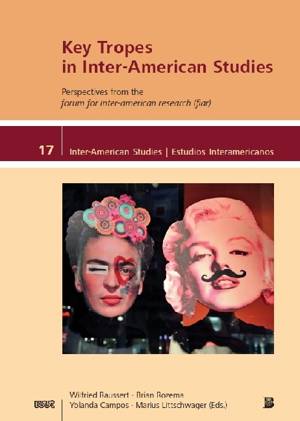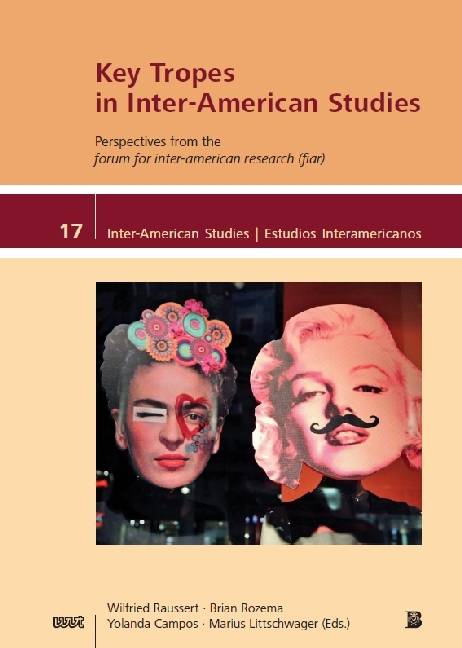
- Retrait gratuit dans votre magasin Club
- 7.000.000 titres dans notre catalogue
- Payer en toute sécurité
- Toujours un magasin près de chez vous
- Retrait gratuit dans votre magasin Club
- 7.000.000 titres dans notre catalogue
- Payer en toute sécurité
- Toujours un magasin près de chez vous
Key Tropes in Inter-American Studies
29,45 €
+ 58 points
Description
This book is a key text for scholars and students that study the Americas in a multilingual and transdisciplinary fashion. The dialogical paradigm that underlies any sincere Inter-American scholarship makes clear that no single scholarly positioning can capture the complexity of Inter-American connectivity. This is what Inter-American Studies share with Global Studies: A necessity to negotiate multiple and at times conflictive paradigms to tackle its objects of investigation. The volume introduces eight key tropes in Inter-American Studies, as they have emerged from the work of the IAS web publication platform fiar forum for inter-american research since the latter's foundation in 2008.The editors have selected eight key tropes and regrouped essays from the period between 2008 and 2015 to highlight some of the most important paradigms for the pursuit of interdisciplinary Inter-American studies. The tropes include 'colonial/decolonial,' 'independence,' 'religion,' 'border,' 'mobility,' 'race/indigeneity,' 'gender,' and 'decolonial reflections.' The key tropes chosen should not be seen as separate entities for in many respects they are related or overlap to some degree; nor are they meant to be an exclusive list of terms. They function more as a representative selection to illustrate recent paradigms and their application. For every trope the editors have included one article in English and one in Spanish."fiar is an innovative international journal in the forefront of interdisciplinary research into Inter-American studies. It brings together writers and readers-researchers and an audience-that cut across linguistic and cultural lines and provides cultural comparisons that are as refreshing as they are necessary. Here the New World-the Americas-are explored in their plurality and in a global context. In rigorous and exciting ways, this journal examines significant topics, including indigenous peoples and those who complicate the relation between center and margin and those who cross borders."Jonathan Hart, Clare Hall; University of Cambridge
Spécifications
Parties prenantes
- Editeur:
Contenu
- Nombre de pages :
- 374
- Langue:
- Espagnol, Anglais
- Collection :
- Tome:
- n° 17
Caractéristiques
- EAN:
- 9783868216271
- Format:
- Livre broché
- Dimensions :
- 148 mm x 210 mm
- Poids :
- 603 g






